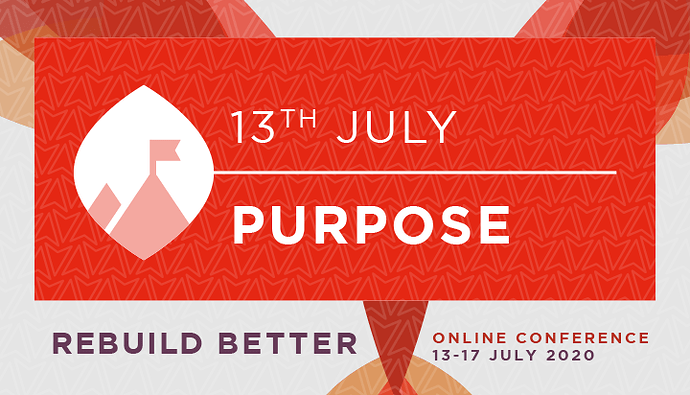Live Panel
13th July 2020, 3:15pm - 4:15 PM BST [ADD TO CALENDAR]
Panel
- Mario Augusto Maia, Head of Investments, Novozymes
- Leonora Barclay, Global PR Manager, Avon
- Vittorio Cerulli, Senior Adviser, Business Fights Poverty
- Aiden Choles, DBK Advisory
- Robert Eccles, Visiting Professor of Management Practice, Said Business School, University of Oxford
- Hanne Dalmut, Sr. Director of Partnership Development, Concordia
- Cory Gilman, Advocacy Manager (Equitable Value Chains-- Coffee), Heifer International
- Mark Hauser, Partner, Innate Motion
- Mark Hodge, Senior Associate, SHIFT
- Ben Kellard, Director of Business Strategy, Cambridge Institute for Sustainability Leadership
- Mark Meaney, Scholar-in-Residence, Social Responsibility and Sustainability, Leeds School of Business
- Daniel Neale, Social Transformation Lead, World Benchmarking Alliance
- Charlotte Portier, Manager of International Policy, Global Reporting Initiative
- Meegan Scott, Principal Consultant, Magate Wildhorse
- Tazin Shadid, CEO, YYVentures
Moderator: Katie Hyson, Director of Thought Leadership, Business Fights Poverty
Background
The coronavirus pandemic is reinforcing the importance of responsible business conduct, including topics such as labour protections, managing impacts on workers in the supply chain and paying fair taxes to ensure governments have sufficient revenue to protect and develop their people. Human rights and human development should be at the core of corporate sustainability action.
The context makes the development of social indicators more relevant than ever and provides an opportunity to discuss responsible business models and the role of business in society.
What would a common set of core social expectations that all companies must meet look like? What are the current critical gaps or stoppages that prevent this from happening at the moment? Beyond the basics, what are the key social transformations that companies can contribute to?
Held in partnership with the World Benchmarking Alliance, join this online written discussion to share your views, examples and suggestions, whilst asking the experts their advice.
Questions:
- What would a common set of core social expectations that all companies must meet look like?
- What are the current critical gaps or stoppages that prevent this from happening at the moment?
- Beyond the basics, what are the key social transformations that companies can contribute to?
Format
This is a text-based discussion. There will be no video or audio. Please post your comments below. After the live session, this discussion will remain open, so please do continue to share your insights. To receive a free summary of this discussion afterwards, register here
How to participate
To post a comment, you will need to sign in / sign up to the Business Fights Poverty Discussion Forum:
If you are already a member of the Business Fights Poverty online community, click “Log In” at the top right of the page and then enter your details. If you have not logged into our new community platform, you will have to reset your password here
If you are not already a member of the Business Fights Poverty online community, you will need to sign up here . Once you are have joined the community, you can return to this discussion page, click “Log In” at the top right of the page and then enter your details.
